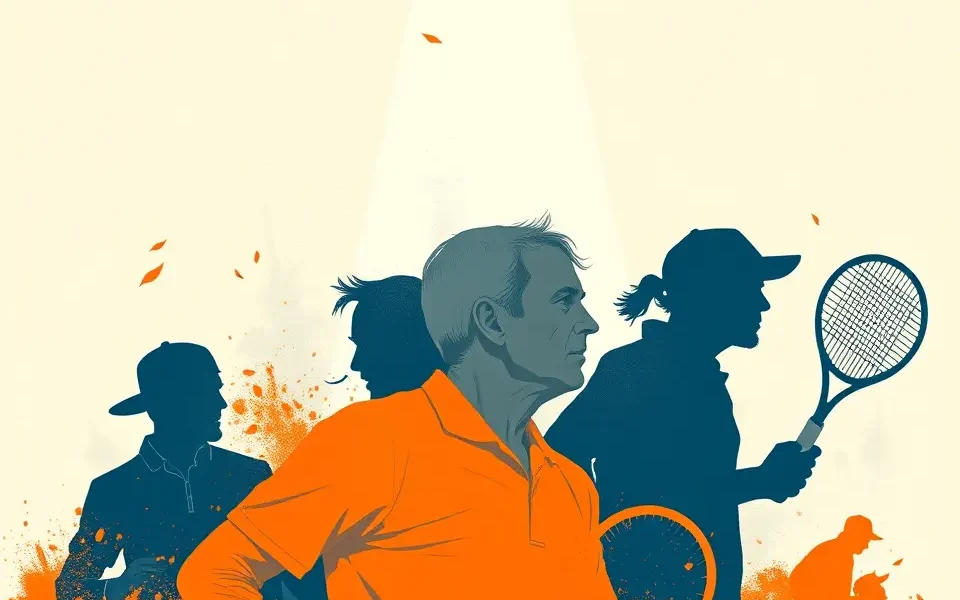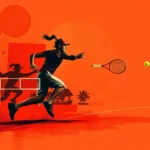The debate over the greatest male tennis player of all time (GOAT) has raged for years, primarily focusing on the “Big Three”: Roger Federer, Rafael Nadal, and Novak Djokovic. With Federer’s retirement in 2022 and Nadal nearing the end of his career, Djokovic stands as the last active member of this legendary trio. As Djokovic continues to accumulate records, the question of whether he has definitively surpassed his rivals becomes ever more pressing. Patrick Mouratoglou, a renowned tennis coach, has offered his perspective on this complex issue, providing a “harsh truth” about Djokovic’s place in tennis history.
Mouratoglou’s Analysis: Beyond Talent, It’s Mental Fortitude
In a recent interview with Eurosport, Patrick Mouratoglou stated that Novak Djokovic’s dominance isn’t solely about talent, but more about mental strength. He points out that while Federer and Nadal may have enjoyed greater popularity among fans, Djokovic’s relentless drive and mental toughness have been key to his record-breaking achievements.
Mouratoglou noted, “Roger and Rafa retired, while Nole entered the last part of his career. If we did a real analysis, it is very difficult to dispute the fact that the Serbian was the best of the three having broken all records. This shows that the most important aspect in this sport is not talent, but mental strength. Mentality is what really makes the difference in the long run. I know some people disagree with me on this concept, but the facts prove me right.”
This perspective challenges the romanticized view of Federer’s effortless grace or Nadal’s fierce intensity, suggesting that Djokovic’s steely resolve has been the ultimate deciding factor.
Djokovic’s Records: The Numbers Don’t Lie
Djokovic holds a number of significant records that support Mouratoglou’s claim:
- Most Grand Slam Titles: Djokovic leads with 24 Grand Slam titles, surpassing Nadal (22) and Federer (20).
- Most Weeks at World No. 1: Djokovic has spent a record 428 weeks at the top of the ATP rankings, far exceeding Federer (310) and Nadal (209).
- ATP Masters 1000 Titles: Djokovic also holds the record for the most ATP Masters 1000 titles with 40, ahead of Nadal (36) and Federer (28).
- Head-to-Head Records: Djokovic has a winning head-to-head record against both Federer (27-23) and Nadal (30-29).
These statistics provide a compelling argument for Djokovic’s supremacy, showcasing his consistency and dominance across various surfaces and tournaments.
The “Average Game” Argument: Overcoming Limitations
Mouratoglou goes a step further, suggesting that Djokovic didn’t possess the same natural talent as Federer or Nadal early in his career. He argues that Djokovic’s “average game” forced him to develop an unparalleled mental strength and strategic approach to compensate.
Mouratoglou stated, “When you look at the three greatest, whether it pleases people or not, one of the three is the greatest of all. He’s been world No. 1 longer, he’s won more Grand Slams, more Masters 1000s, he beats them everywhere. That’s Novak. When you look at the three, two of them were already at the top when Novak arrived. Everyone said they were unbeatable. Novak arrived with a very average game. Even today, at the end of their careers, when you look at Rafa’s game, Roger’s game, and Novak’s game, it’s incredible that Novak is the strongest of the three, the one who broke all the records. It just goes to show that what matters most isn’t the tennis, the racket. Of course, you need the tennis, but the key difference-maker is the mindset, the mentality. I know it bothers some people to say this, but it’s by far the most important thing.”
This perspective highlights Djokovic’s incredible work ethic and his ability to constantly evolve his game, adapting to challenges and overcoming perceived limitations.
The Motivation Factor: A Double-Edged Sword
While Djokovic’s hunger for records has undoubtedly fueled his success, Mouratoglou has also suggested that a lack of motivation impacted him in 2024. With Federer retired and Nadal’s career winding down, Djokovic may have lost some of the intense rivalry that drove him for so many years.
Mouratoglou explained, “I think the only thing that Novak needs is motivation. After he felt that Rafa was done at the start of 2024, he could not find motivation anymore. He didn’t drop his level in two months, this is impossible. His motivation dropped because he won the fight between him, Roger, and Rafa.”
This suggests that Djokovic’s pursuit of greatness is intrinsically linked to his competition with Federer and Nadal. As their presence in the sport diminishes, Djokovic may need to find new sources of motivation to maintain his dominance.
The Achilles Heel? Clay Court Battles
Despite Djokovic’s overall success, Nadal holds a significant advantage on clay courts, particularly at the French Open. Nadal has won the French Open a record 14 times, and his dominance on clay has been a major obstacle for Djokovic throughout his career.
- Nadal’s Clay Court Prowess: Nadal boasts a remarkable 2-14 record against Djokovic on clay, and he has never lost to Djokovic at the French Open.
- Djokovic’s French Open Struggles: While Djokovic has won the French Open twice (2016 and 2021), he has consistently faced tough challenges from Nadal on the Parisian clay.
This disparity on clay represents a significant counterargument to the notion that Djokovic has definitively surpassed Nadal. Nadal’s unparalleled clay-court dominance remains a testament to his unique skill set and unwavering mental strength on that surface.
The GOAT Debate: Subjectivity and Lasting Impressions
Ultimately, the GOAT debate is subjective and depends on individual criteria. While Djokovic’s records and head-to-head advantages provide a strong case for his supremacy, factors such as:
- Aesthetic Appeal: Federer’s graceful style and universal popularity resonate with many fans.
- Inspirational Story: Nadal’s relentless fighting spirit and humility inspire millions.
- Cultural Impact: Each player has contributed to the sport’s growth and global appeal in unique ways.
These intangible qualities make it difficult to definitively declare one player the greatest. Each member of the Big Three has left an indelible mark on tennis, and their legacies will continue to be debated for years to come.
The Next Generation: A New Era of Competition
As Djokovic enters the later stages of his career, a new generation of players is emerging to challenge his dominance. Carlos Alcaraz and Jannik Sinner have already demonstrated their ability to compete at the highest level, and they represent a significant threat to Djokovic’s quest for further Grand Slam titles.
- Carlos Alcaraz: Alcaraz’s athleticism, versatility, and aggressive style have made him a formidable opponent on all surfaces.
- Jannik Sinner: Sinner’s powerful groundstrokes and mental fortitude have propelled him to the top of the rankings.
These young stars are ushering in a new era of competition, and their battles with Djokovic will undoubtedly shape the future of tennis.
Conclusion: A Legacy Forged in Rivalry
Patrick Mouratoglou’s “harsh truth” about Novak Djokovic is a nuanced perspective that acknowledges the Serbian’s incredible achievements while also recognizing the unique qualities of Federer and Nadal. While Djokovic’s records may indicate his statistical superiority, the GOAT debate remains subjective, influenced by factors beyond mere numbers.
Djokovic’s legacy is inextricably linked to his rivalry with Federer and Nadal. Their battles have pushed each player to new heights, and their collective impact on tennis is undeniable. As Djokovic continues to compete and new stars emerge, the GOAT debate will continue to evolve, but the contributions of the Big Three will forever be etched in tennis history.








No Comment! Be the first one.